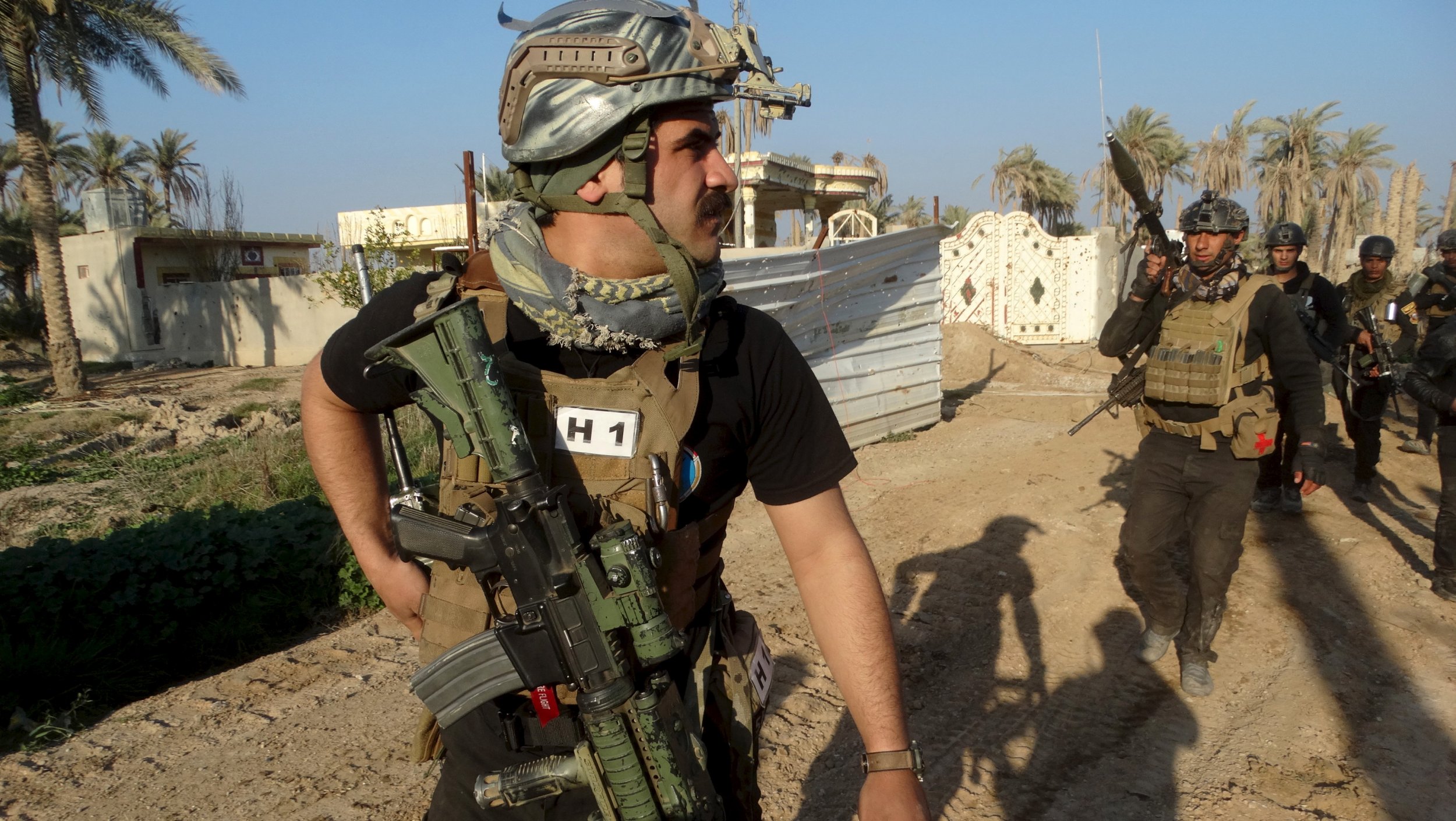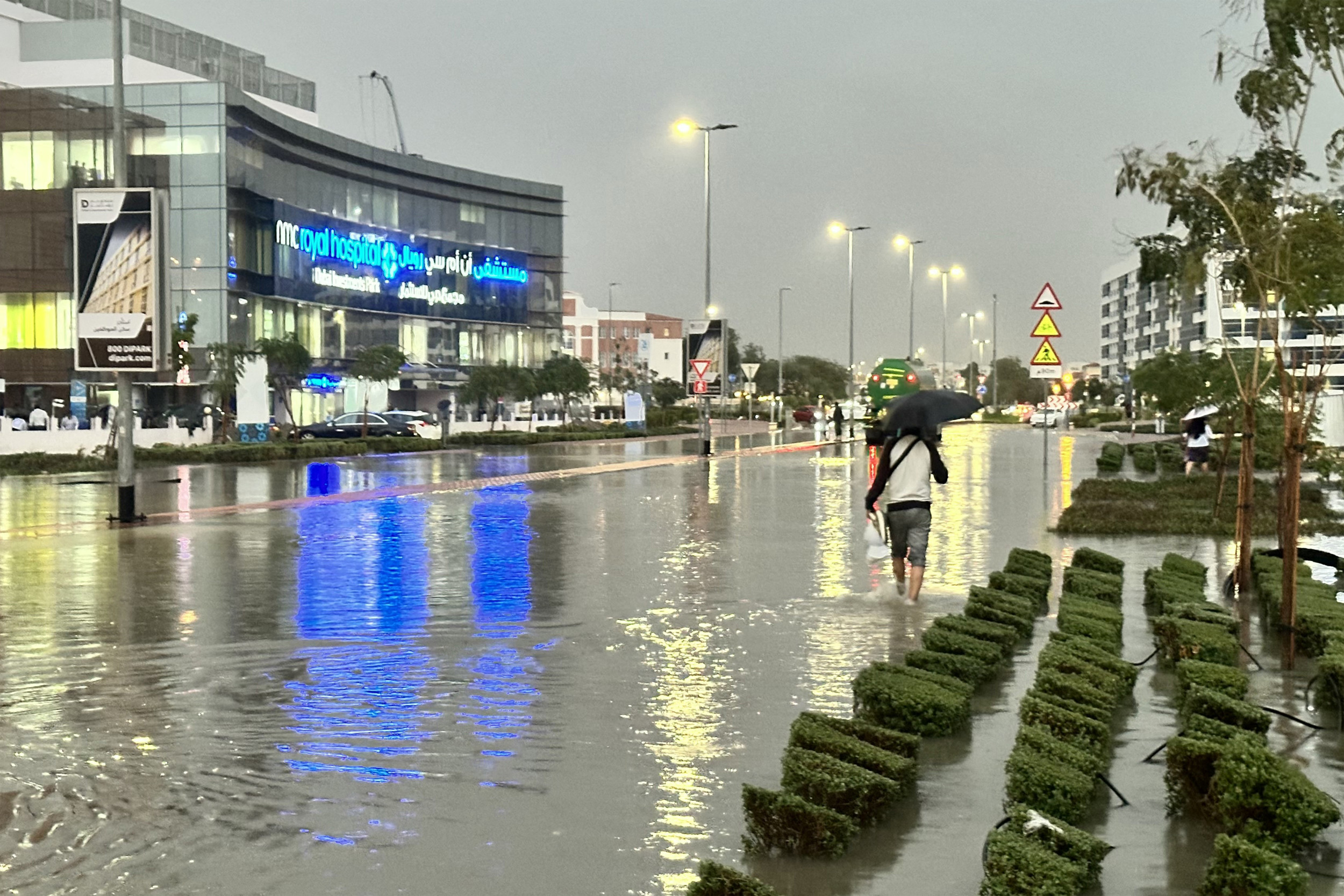
Updated | Call it Apocalypse Not. When Iraqi troops mobilized in December for a major assault to retake the key provincial capital of Ramadi from Islamic State militants, a number of ex-senior U.S. intelligence officers offered dark predictions that Iranian-backed Shiite death squads would unleash a bloodbath in the Sunni provincial capital.
But it didn't happen. Instead, the retrained Iraqi army, an integrated force of Sunni and Shiite troops under Baghdad's firm control, evicted the ISIS fighters without a bloody sectarian conflagration, albeit reducing the city to rubble.
What changed?
Senior U.S. officials are quick to credit Iraqi Prime Minister Haider al-Abadi, a Shiite, for recognizing "the sensitivities," as one puts it, "involved in having the murderous Shiite militia involved in these operations." He and others also point to Abadi giving the elite U.S.-created and -trained Counter Terrorism Service, which operates independently of the Shiite-run Defense and Interior ministries, the lead role in the offensive.
"Ramadi became a chance to prove themselves," Renad Mansour, a fellow at the Carnegie Middle East Center in Beirut, tells Newsweek. But Kirk Sowell, publisher of " Inside Iraqi Politics," a risk analysis newsletter, says the Shiite militias never had a chance of gaining a foothold in Ramadi, "which is all Sunni and always going to be Sunni." Plus, however belated and cynical, the militias are suddenly image-conscious, says Nathaniel Rabkin, the newsletter's managing editor and a former U.S. Army Arabic linguist in Iraq.
"They have other agendas beyond taking revenge or punishing the Sunnis. They want to be major players in politics going forward," Rabkin says. "And to do that, they need to demonstrate a certain level of responsibility in their behavior vis-à-vis the other major Shiite parties."
One of the most vocal doomsayers on Ramadi was Michael Pregent, a former intelligence aide to General David Petraeus whose expertise on the Iran-backed militias was sharpened while he was embedded as an adviser with the Iraqi army during the worst days of Sunni-Shiite bloodletting from 2005 to 2006. As the Ramadi offensive unfolded, Pregent posted a photo of what he said was "Iran-backed militia Saraya al-Jihad using crude artillery pieces launching unguided bombs on Ramadi" to carry out the "indiscriminate targeting of" civilians.
But the Shiite militias were kept out of the city. Pregent insists that the only reason they didn't enter Ramadi was that such "artillery and rockets [left] nothing to run wild through." Derek Harvey, another retired army intelligence colonel who had predicted a dire outcome in Ramadi, says the militias would have taken heavy casualties had they tried to join the battle. But while Prime Minister Abadi kept them at bay at Ramadi, Harvey and other experts say, the Shiites haven't given up on playing a role in the region. Indeed, Abadi announced over the weekend (in an Arabic-language tweet) that the Popular Mobilization Forces (PMF)—an umbrella group formed after Grand Ayatollah Ali al-Husseini al-Sistani, Iraq's most powerful Shiite cleric, called for fighters to help take on ISIS—will take part in the assault on Mosul, ISIS's stronghold in the country.
After virtually destroying Ramadi to dislodge ISIS in December and January, the Iraqi forces hit the pause button–much to the irritation of U.S. officials–instead of moving north to consolidate their control and win new territory from ISIS. "The key question is whether Ramadi is really under [their] control," says Norman Ricklefs, who served as a high-level adviser in the Iraqi ministries of Defense and Interior from 2005 through 2010 and does business there now. The twin question, he says, is "how long ISF [Iraqi security forces] can hold it and what that occupation will look like."
He and the others hope, of course, that the Shiite militias will stay away. But it won't be over, they all agree, until Abadi gets a firm leash on powerful Shiite forces within and without his government.
While applauding the ISF's nonsectarian offensive in Ramadi, a senior State Department official cautions that "the Iraqi political landscape continues to be very rough, and there continues to be a great deal of pressure on the [prime minister] for greater use of the Shiite militia."
"There is no doubt that they are a powerful institution in Iraq," he adds, speaking on terms of anonymity to discuss such a sensitive issue, "and trying to corral that power...is one of the biggest challenges facing the prime minister."
Correction: This story originally said the newsletter Inside Iraqi Politics was located in Baghdad. While some staff visit, it maintains no office in Baghdad.
Uncommon Knowledge
Newsweek is committed to challenging conventional wisdom and finding connections in the search for common ground.
Newsweek is committed to challenging conventional wisdom and finding connections in the search for common ground.
About the writer
To read how Newsweek uses AI as a newsroom tool, Click here.








